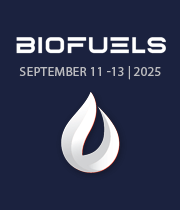Title : Fermentation of Opuntia ficus indica under different temperatures to increase methane production
Abstract:
The cladodes or “leaves” of a cactus, Opuntia ficus indica, are a typical human food in Mexico. The production reached almost 900,000 ton/y. Approximately 5% gets lost during manual harvesting because the cladodes do not comply with commercial standards. Opuntia is biomass with great potential in countries with semiarid regions because it can be harvested year-round and is resistant to plagues and dry seasons. This work deals with the fermentation of Opuntia ficus indica in a jacketed batch reactor (4 L) at different temperatures (17, 25, and 35°C) and fermentation times (3, 6, and 10 days), managing to identify the metabolic pathways. The reactor was operated with Opuntia milled to a particle size of 6 mm. At 17°C, the lowest consumption of soluble carbohydrates was observed; ethanol was the most prevalent metabolite, the production starting on day 6 of the fermentation. At a temperature of 25°C, a significant reduction of soluble carbohydrates was observed during the first 3 days of fermentation, with methanol and acetic acid being the metabolites with higher concentrations. At 35°C, soluble carbohydrates increased due to hydrolytic processes; methanol, ethanol, and acetic acid were observed, with no evidence of a predominant fermentation. The production of fermentation products (VFA and/or alcohols) increased with temperature. Methanization tests were performed on the previously fermented Opuntia. Samples from three different temperatures and fermentation times were placed in an automatic methane production system (AMPTS II) to determine biogas and methane production. Although the condition that achieved the highest generation of volatile fatty acids (VFA) and alcohols was expected to generate higher methane production rates, the results show that at a temperature of 25°C and a fermentation time of 6 days, a region of high specific production and high methane generation rate was reached. A fermentation of Opuntia longer than 6 days causes a significant reduction in methane production. The temperature of 35°C allows better hydrolysis of carbohydrates and increases the VFA and alcohols generation. The methane-specific production and rate are better at 25°C and 6 days of fermentation. Under this condition, higher VFA and alcohols production were not achieved.



